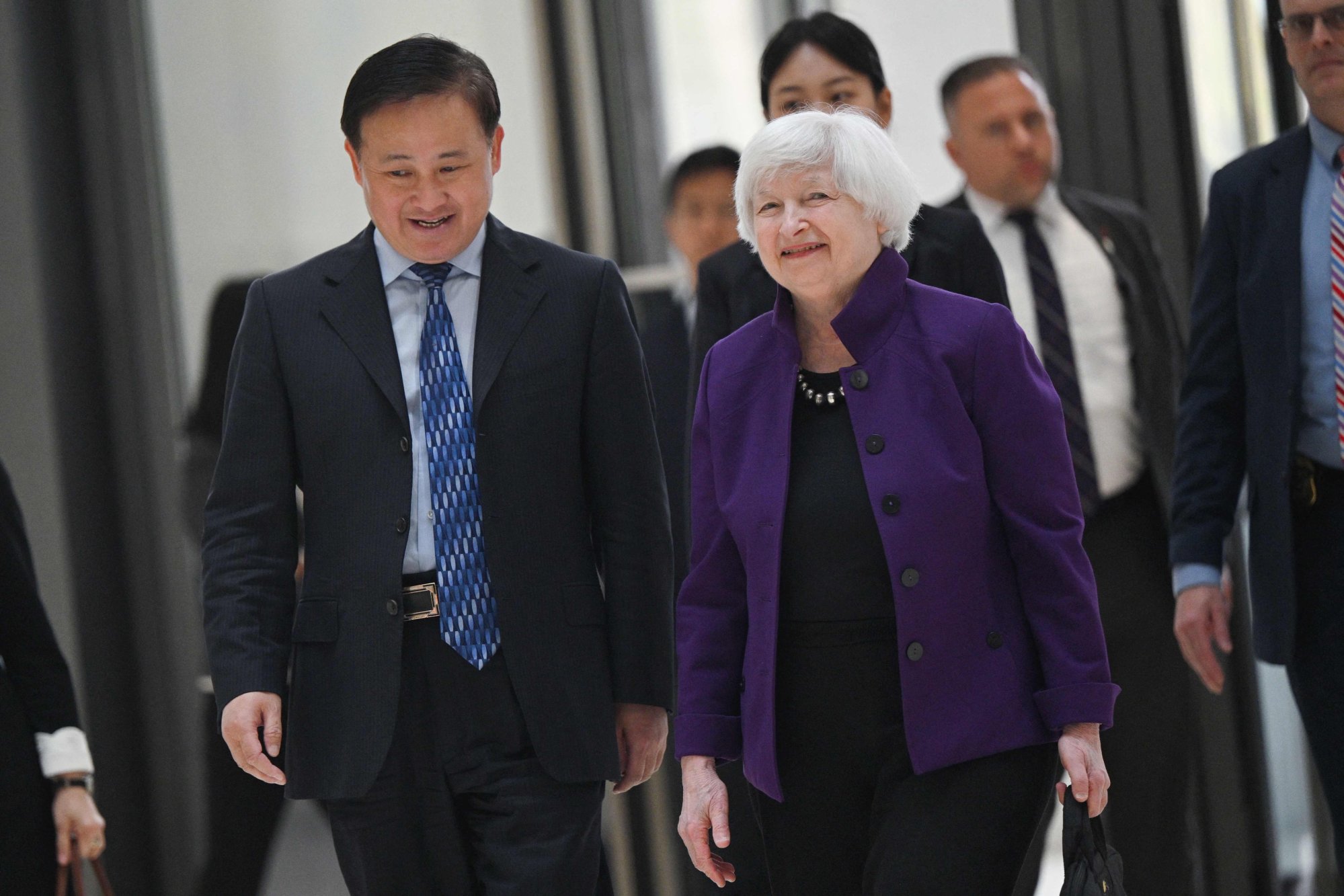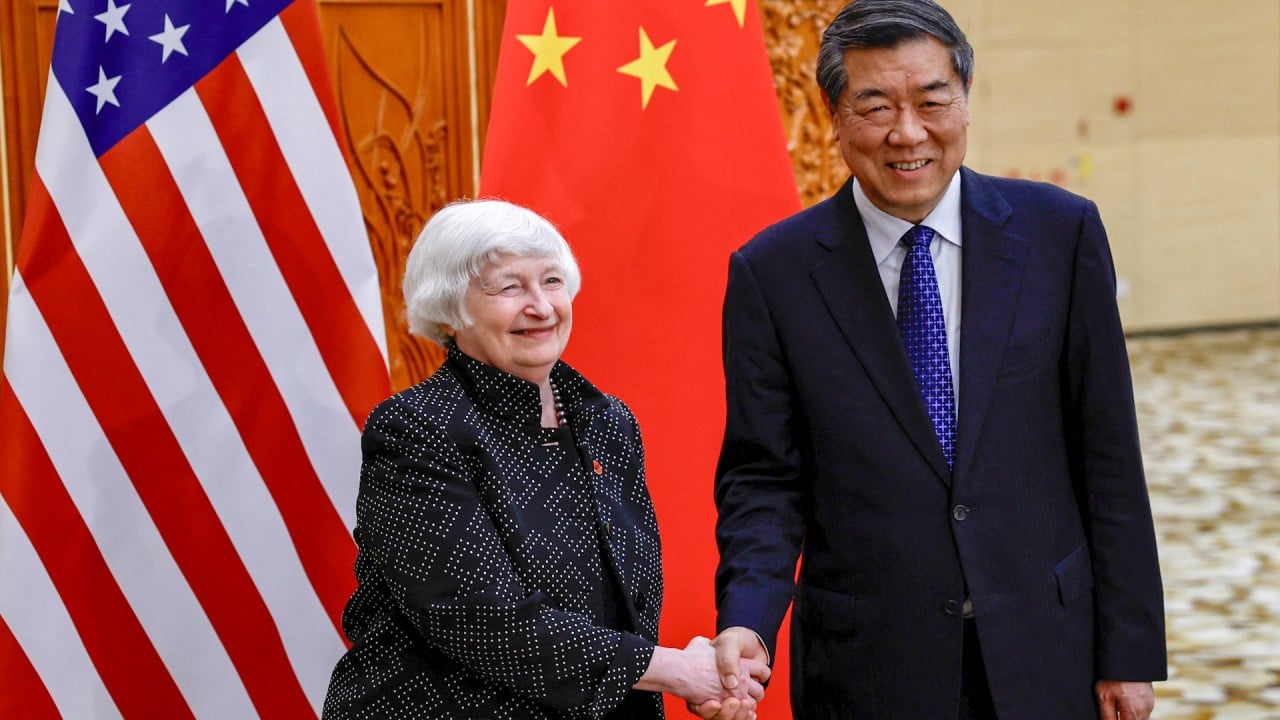
Tough conversations key to bridging gap between China, US
- Despite lack of progress on electric vehicle and solar panel ‘overcapacity’, trip by US Treasury Secretary Janet Yellen helps keep superpower communications open
China and the United States keep talking, and that is half the battle in rebuilding trust and understanding. US Treasury Secretary Janet Yellen’s visit to China, following last November’s summit between President Xi Jinping and his US counterpart Joe Biden and their recent phone call, is a sign of more stability in bilateral relations.
Yellen and her hosts were never going to see eye to eye on Chinese “overcapacity”. But at least the two sides were willing to engage in open and frank talks.
With US elections coming up, this is important. It is to be hoped they can continue high-level dialogue on financial and trade relations regardless of any attempts to politicise them.
Media focus on overcapacity during Yellen’s visit was understandable. A call for a policy change on the issue topped her agenda as a senior member of Biden’s cabinet.
The Americans share European concerns that Chinese industrial policy will result in “artificially cheap” products such as electric vehicles (EVs) and solar panels flooding global markets. Automobiles remain a key industry and job creator in the West.
There are concerns Chinese EVs will eat into market share and hurt Western economies. The West wants China to boost domestic demand to absorb overcapacity.
Resistance has come from high-ranking Chinese officials, although Beijing has warned that overcapacity in some sectors may drag on economic recovery. After meeting Yellen, Premier Li Qiang urged the US not to politicise economic issues and “look at the capacity issue objectively”.
China says that what makes its EVs competitive are innovation, stable supply chains and market strategy. It sees the overcapacity issue as protectionism to close markets to China.
Both positions are entrenched. Dialogue is a safety valve.

The US-China relationship is not all about overcapacity. It will go a long way towards shaping global development.
Yellen is a leading player on the US side, having maintained regular contact with Chinese officials, including meeting Vice-Premier He Lifeng three times over the past year. She has repeatedly denied any intention to decouple from China.
The two sides also discussed debt alleviation for developing countries, broadening financial technical exchanges and a new anti-money-laundering platform established between the People’s Bank of China and the US Treasury.
The two still hold vastly different views. As a result, they had what Yellen called “difficult conversations” on economic policy and security.
How far did Janet Yellen’s trip move the ball for US-China relations?
But they realise that it is unrealistic to ignore the other side’s concerns. It is therefore encouraging to see high-level dialogue that cultivates trust and understanding.
There may be more difficult conversations to come, with US Secretary of State Antony Blinken also expected to visit China and the two countries’ defence chiefs likely to meet soon.


